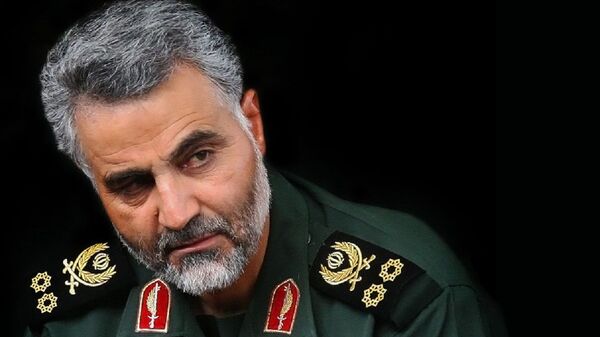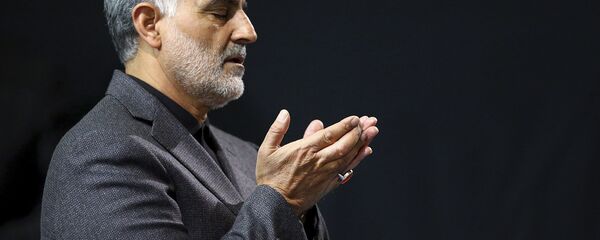The reason no US general has been killed in retaliation for the death of Iranian General Qasem Soleimani is that no American military chief can be compared to the late Quds Force commander, in terms of value and importance, the IRGC Deputy Commander for Political Affairs, Yadollah Javani, observed.
"Given the intrinsic value of [Qasem Soleimani], it would be impossible to find anyone who is equally valuable [among US military officials]. He is of so much value to the Resistance [front] that we cannot find anyone similar to retaliate against", the IRGC official said.
Javani stated that the only way Tehran would be able to effectively retaliate against the US for his killing would be by permanently expelling US forces from the region – a move that Iran has been urging Gulf states to do for years. The IRGC official noted that Soleimani's killing marked the first step in that direction as, soon after the US conducted its extra-judicial death, Iraq's parliament adopted a non-binding motion demanding the expulsion of all foreign troops from its soil.
The statement comes in the wake of IRGC commander Hossein Salami promising that the "blood" of Qasem Soleimani will be avenged, hinting that January airstrikes on Iraqi bases hosting American troops will not be the only response by Tehran to the murder of its top general.
Soleimani was assassinated by American forces on 3 January as he was leaving the Baghdad International Airport while on a secret diplomatic mission to pass a message to Saudi Arabia via the Iraqi government. The killing was not approved by the Iraqi government, despite it taking place on the country's soil. The Trump administration claimed that Soleimani was planning attacks on American diplomatic missions in the region, but presented no evidence to support the allegation used by the White House to justify the general's murder.
Tehran harshly condemned Soleimani's assassination and five days after it took place launched a massive missile attack on two airbases in Iraq, Ayn al-Asad and Erbil, hosting US troops. At least 110 service members were said to be injured, sustaining head trauma, but no fatalities were reported.




